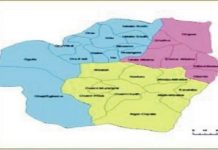By tunji adejdeji
A Foremost Educationist and tested technocrat, Chief Charles Okorafor, Mni, has described Education as non negotiable for a given society to attain enviable height in the comity of states.
The retired Permanent Secretary in the Imo State Civil Service made this declaration while delivering a Paper at the International Conference on “Culture and Functionality of Education in Contemporary Nigeria”, organized by the Whelan Research Academy, Owerri.
In a Paper titled “Government and Educational Values” Chief Okorafor who was a Principal of Ngor Okpala High School and St Ephraim’s secondary school, Owerrinta of Yore, maintained that it was unfortunate, the dwindle fortunes of education in Nigeria today, compared to the days when only standard six certificate could lead one to topmost echelon of an organization.
Quoting Joseph Addison, the erudite scholar said “Education is a companion which no misfortune can depress, no crime can destroy, no enemy can alienate, no despotism can enslave”. He went on to describe education thus: “At home a friend, abroad an introduction, in solitude a solace, and in society an ornament”.
Chief Okorafor stated that without education, a man is empty, but a splendid slave and a reasoning savage, pointing out that Nigerian educational system as presently constituted needs modifications, adding that one of the functions the British colonial administration brought to Nigeria was the attention it gave to education by initiating “enactments to enthrone order in the near-chaotic education enterprise run in the territory by diverse missionary agencies”.
The Ngor Okpala born Education guru maintained that the premium placed on education then by the colonial masters guaranteed “periodic grants-in-aid to voluntary agencies to assist them in financing of their educational endeavours”.
The respected scholar disclosed that it was well-planned and structured educational system that made Iya Abubakar, a Bachelor of Science, mathematics student of then University College Ibadan have the best result in the examination in the University of London, which the University College was affiliated to then.
He blamed planlessness as the bane of educational administration in Nigeria, adding that 6-3-3-4 system has been a monumental failure because junior secondary classes 1-3 students have not had the opportunity to being equipped with the vocational skills “encapsulated in introductory technology component of the curriculum”.










